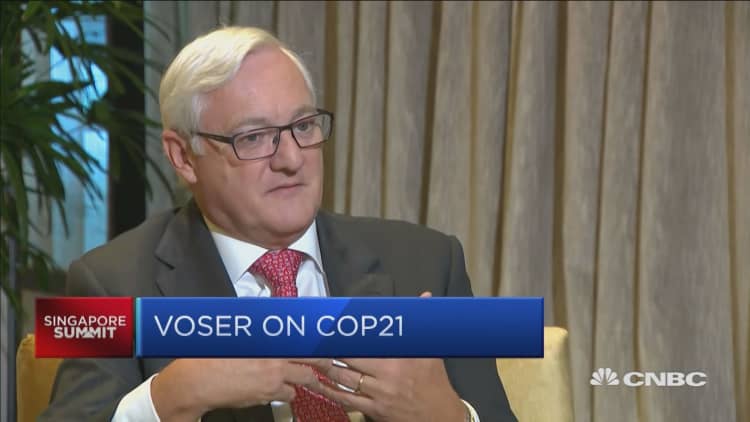
ABB, a major player in the realm of robotics, automation and power generation, is fiercely committed to the global shift to electric vehicle transportation.
The transformation from traditional cars to electric ones is "a huge opportunity" that will enable ABB to "work with smart cities of the future," Chairman Peter Voser told CNBC on the sidelines of the Singapore Summit over the weekend.
ABB currently helps design, build and maintain infrastructure for electric cars. Earlier this year, it launched a new product in Malaysia that reduced charging time for EV vehicles to 15 minutes.
More still needs to be done to improve the EV landscape in consumer transportation, such as cars and buses, Voser warned. In particular, "we need vast investment for charging stations," he said.
The Swiss-based multinational supplies power through high-voltage direct current technology into cities and consumers, Voser explained. "On the other side, we're also working with car manufacturers because quite clearly, they need our robots, our automation capabilities so that they can switch from one model to the next."
Previously chief of Shell, Voser said he believes the future of transportation over the next 40 to 60 years will be dominated by a mixture of self-driving vehicles, combustion engines and electric cars.
That should be an opportunity, not a worry, for energy players, he said.
While major companies like Shell still remain active in gas, "business models will evolve," Voser said. Big energy firms are comfortable with technological developments, "and I think they will transform themselves as well."
There are also enough incentives by regulators to increase corporate levels of energy efficiency, he added.


